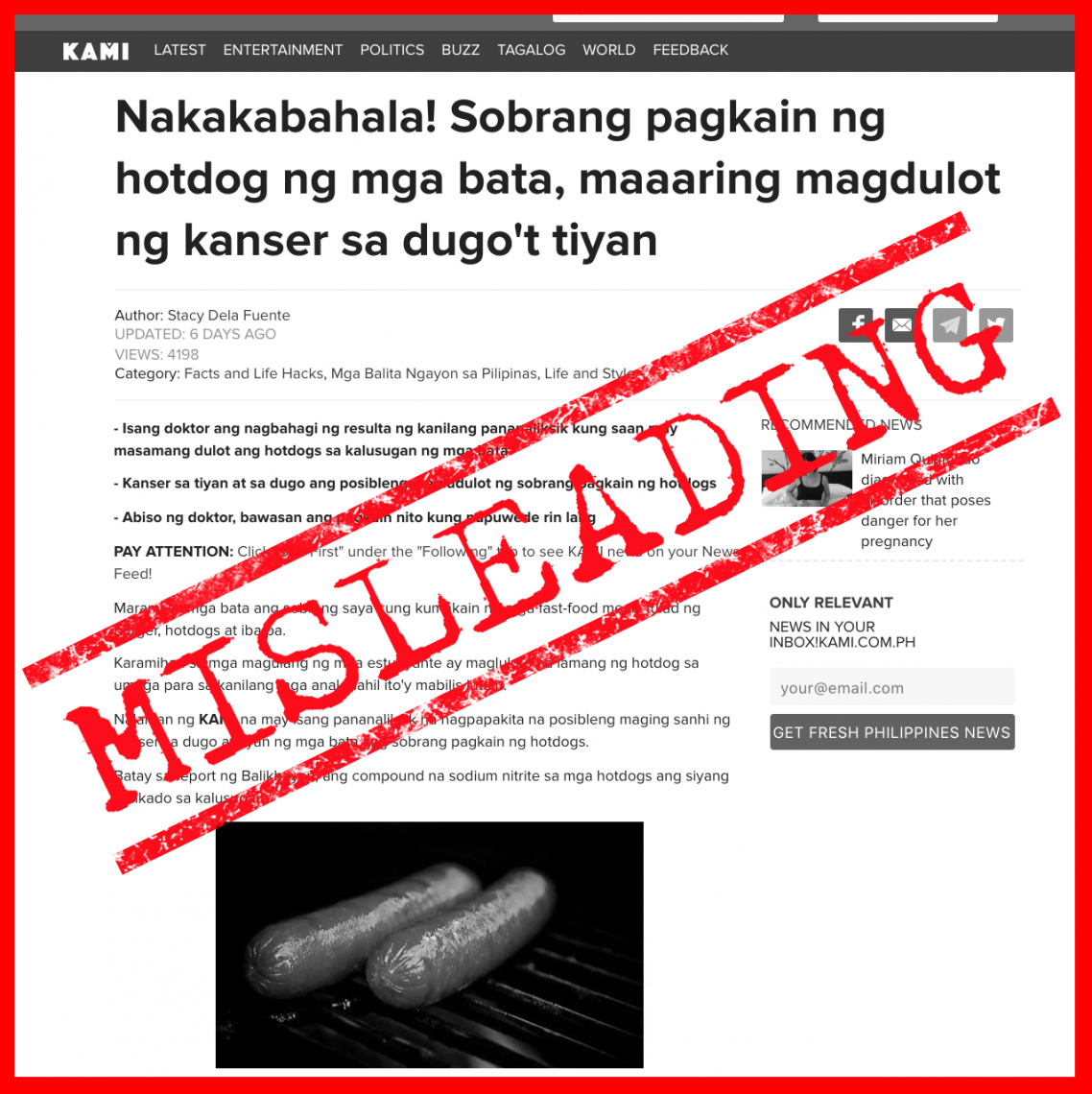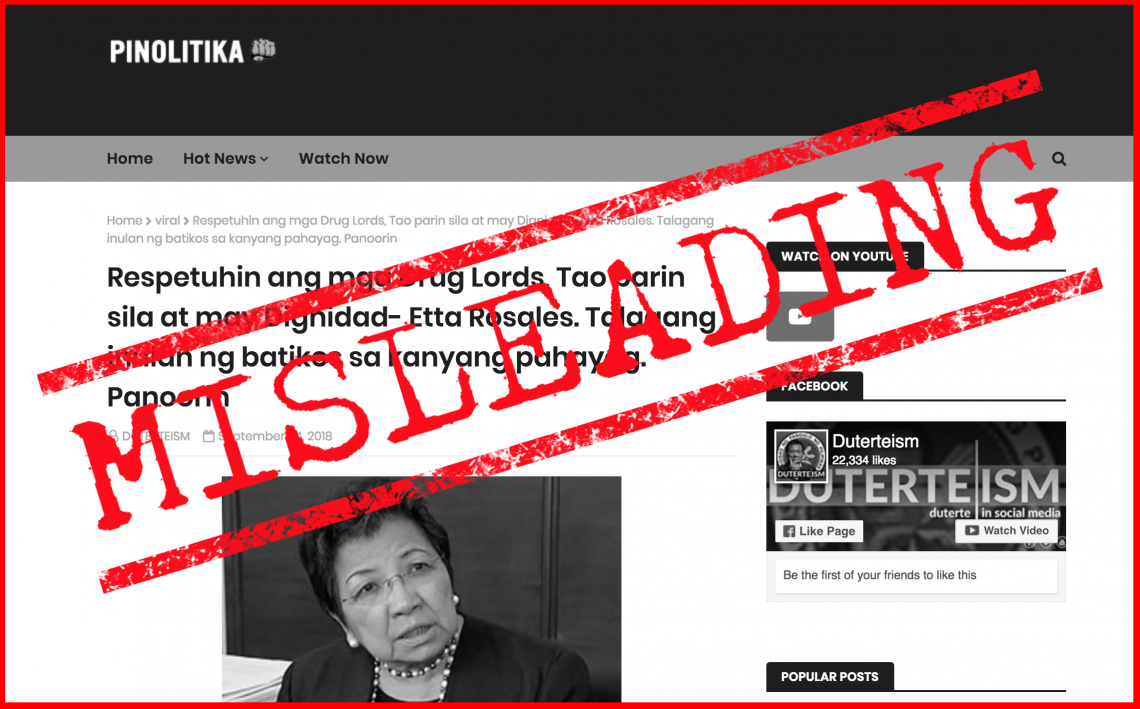A year-old online report by website kami.com.ph claiming that eating too much hot dogs may cause cancer in the blood and stomach among children is misleading.
The December 2018 post used the headline, “Nakakabahala (Alarming)! Sobrang pagkain ng hotdog ng mga bata, maaaring magdulot ng kanser sa dugo’t tiyan (Eating too much hot dogs, may cause cancer in the blood and stomach among children).”
It claimed to have encountered a study that bears such findings, but did not give specifics: title of the research, who conducted it, or where and when it was carried out.

Without proper context, the post is misleading.
The kami.com.ph report is a rehashed and Filipino-translated version of a balikbayan.info story entitled, “BEWARE: Parents, Tigilan Nyo Na Ang Pagpapakain Ng Hot Dogs Ang Inyong Mga Anak Dahil Nagdudulot Ito Ng Stomach Kanser At Kanser Sa Dugo (stop feeding your kids hot dogs because they cause cancer in the stomach and blood).” This write-up has been taken down.
The balikbayan.info article, on the other hand, merely cited, plagiarized and presented as new, excerpts from a 1994 article in the New York Times, “Eating Well”, which talked about a “possible link between the high consumption of hot dogs and childhood leukemia.”
In 2015, the World Health Organization (WHO) International Agency for Research on Cancer (IARC) declared processed meat–defined as meat that has been transformed through salting, curing, fermentation, smoking, or other processes to improve flavor or preservation–including hot dogs, as a carcinogen. Carcinogen means, it may cause cancer.
The IARC said eating processed meat increased the risk of colorectal cancer. It is also associated with stomach cancer but evidence is not yet conclusive.
Kami.com’s misleading post could have reached at least 9.185 million people. Its top traffic generators on social media include Facebook pages kami.com.ph and Pinay Ako.
Kami.com.phwas created in November 2018 and balikbayan.info in February 2018.
(Editor’s Note: VERA Files has partnered with Facebook to fight the spread of disinformation. Find out more about this partnership and our methodology.)





